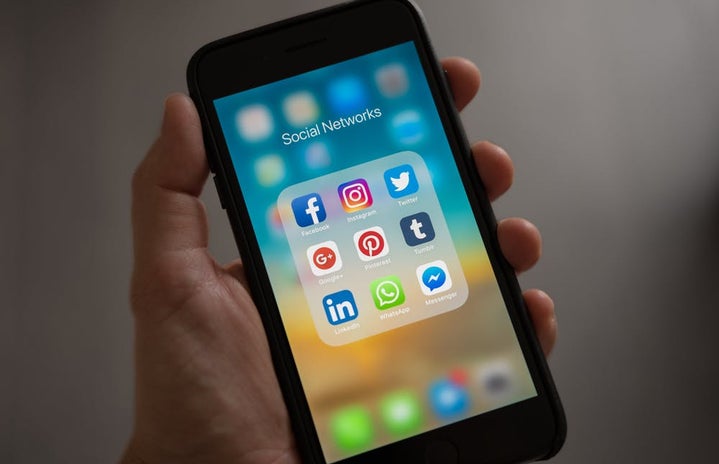No, this isn’t an article on the rumored data breach, but about a few metaphorical algorithms that are breaching our lives differently. The infamous notion of WhatsApp University has turned into a by default reality for the online college batch. To the homogenous greeting messages from family groups are now added an array of class groups (informal and formal for EACH paper), internship calls, society groups, webinar forums. A top to bottom survey of WhatsApp messages for an average uninitiated would be 30-45 minutes; a process that may leave one exhausted without doing any actual concrete work. Added to this are the in-between check-ins of a few minutes. The point of breaking is the sudden realization of having wasted a huge chunk of time checking messages -which is followed by urgent reform decisions of time regulation, only to fall short on our initial will.
The distinction between virtual and reality life has become blurred, and the first step would be to apply the most basic values and ethics surrounding offline communication to online mode. In a world where phones have become an extension of ourselves, being mindful about one’s WhatsApp health is important; and with offline college mode nowhere in near sight, optimizing once usage habits is crucial.
Groups not Mob Mentality
Groups mean more than two people coming together and interacting over a common interest or purpose. They entail expectations and obligations, not mob mentality which appears to underlie many WhatsApp groups. This is best reflected in the forwarding of promotional messages on working groups or a chain of the same promotional message on the same group. Sharing music contest messages on an art and architecture society group is, for lack of a better word, funny. More than 50+ messages of the same event on the same group will increase awareness and irritation regarding that event. The dead weight for promoters to sporadically spread messages is valid, though it would be more beneficial to send the message over a wide expanse rather than it being thrown upon the same group by different people.
Ghosting at the Workplace
In a large working group, important messages by the leader or compadre tend to get ignored. The large numbers cover up for the lack of response, a classic diffusion of responsibility. While no one has sinister plans of deliberately ignoring messages, such evasion can be troublesome for the person in charge of completing a task.
Being Honest
Maybe we don’t have the resources or knowledge to get something done – explicitly stating I can’t help is better than implicitly ignoring the texts. Getting a ”Seen” is the worst crisis of our time, and it sucks to be its receiver.
Schedule It
A wise woman once advised me to check my messages twice a day-once in the morning and once in the evening. She is my mom, who alone realizes the unnecessary pain I am putting myself in, by checking my phone throughout the day. It’s not impossible to stick to your schedule, it’s just difficult to give up on the habit of constantly tapping for updates. Time slotting ensures that I respond or acknowledge messages in my most aware and free state of mind. Doing it after one has completed a heavy cerebral task is a better way forward, though I am guilty of merely procrastinating by doing the opposite.
Organize the Chats
The online college has opened avenues to have a lot on your plate (phone), including WhatsApp groups. Defunct and non-active groups pile on our chat screens, which doesn’t appear to be a big deal due to the app’s perceived non-exhaustive limit. But, based on my personal experience, the end satisfaction of clearing dead chats mirrors cupboard cleaning and is extremely precious- there’s more space, and one reflected on all the chats and groups they grew out of.
Organize the Self
Abundance is exciting, but if you don’t want diarrhea or decision fatigue, organizing one’s self becomes imperative. Knowing what I want and going for it, makes the screen time worth it. A common tendency among initiates is the temptation of signing up for all possible opportunities. Following up and having fun through that process requires deep engagement, something that gets muddled in the swiftness of the multitude of information flowing through our WhatsApp.
WhatsApp has made the dissemination of data convenient. In a single minute, I can ask the Professor for an extension of the assignment date, register myself for an online event, broadcast that event ,and finalize a weekend plan with friends. If WhatsApp has become an extension of our physical spaces, it must be treated in the same manner. After all ,we don’t just touch and go through the offline aspects of life!


